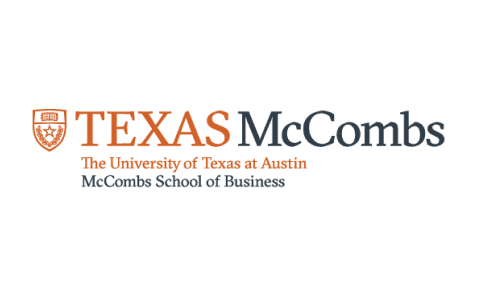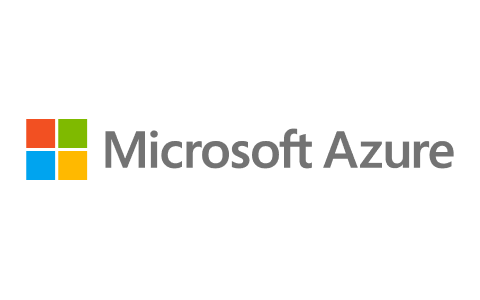Cloud Computing Foundations
Take the first step to boost your Cloud Computing career by enrolling in the free Cloud Computing course. The course will familiarize you with various fundamental concepts and give you insights into cloud benefits.
Instructor:
Mr. Nirmallya Mukherjee
Ratings
Level
Learning hours

Learners
Skills you will learn
About this course
This free Cloud Computing course is designed to help you gain insights into the essential equipment in the IT Landscape. This free course introduces you to the basic concepts of cloud computing. You understand the foundation concepts underlying the cloud, followed by how the cloud helps resolve some of the business concerns. Complete the Cloud Computing Foundations course and earn free access to the certificate.
Build a promising career in the domain with our Cloud Computing Courses. Enroll today to study Cloud Computing from the world-class faculty.
Course Outline
This module starts with helping you understand what Cloud Computing is and go through various cloud models like public, private, and hybrid clouds.
This section discusses various organizational tasks and how the cloud is employed in covering most of them securely and efficiently.
This section discusses why the cloud must be employed in every organization while mentioning the technology's merits.
 UPGRADE
UPGRADE
Recommended university programs
Our course instructor

Mr. Nirmallya Mukherjee
Former Chief Architect, Dell
Cloud Computing Expert
With over two and half decades of cross domain experience in IT and ITES across both services and products, Nirmallya Mukherjee has served as Chief Architect at Dell, Principal Architect at Infosys and Technical Architect at Ciber Inc, an HTC Global Services company.
He lends his expertise to various multinationals like Cisco, Walmart Labs, Amadeus, Mercedes Benz, ANZ, Societe Generale etc. through his consulting, development and training engagements.
Nirmallya is also the Academic Director for the Graduate Certificate in Cloud Computing program.
Check out Nirmallya's LinkedIn https://www.linkedin.com/in/nirmallya/
Frequently Asked Questions
Will I receive a certificate upon completing this free course?
Is this course free?
What are the prerequisites to learning this Cloud Foundations course?
This is a beginner-level course, and you need not have any prerequisites before learning from it.
How long does it take to complete this free Cloud Computing Foundations course?
Introduction to AI is an hour-long course. You can, however, learn from the course at your convenience since it is self-paced.
Will I have lifetime access to this Cloud Foundations course?
Yes. You will have lifetime access to this free online course once you enroll in it.
Cloud Foundations Course
Cloud computing is the practice of using remote servers to store, manage, and process data, applications, and other computing resources over the internet. It has become a popular alternative to traditional on-premises IT infrastructure, allowing organizations to reduce costs, increase scalability, and improve reliability.
Cloud computing is based on a model of shared resources, allowing multiple users to access a common pool of computing resources on-demand. These resources can be dynamically allocated to meet changing user needs, providing the flexibility to scale up or down as needed.
There are three primary service models of cloud computing: Infrastructure as a Service (IaaS), Platform as a Service (PaaS), and Software as a Service (SaaS). IaaS provides virtualized computing resources such as servers, storage, and networking, while PaaS provides a platform for developing, testing, and deploying applications. SaaS provides ready-to-use software applications that can be accessed over the internet.
Cloud computing is typically delivered through a set of technologies, including virtualization, automation, and orchestration. Virtualization is the process of abstracting computing resources from their underlying physical hardware, enabling the resources to be managed and accessed independently. Automation is the process of automating routine tasks, such as provisioning and deprovisioning computing resources, to reduce manual effort and improve efficiency. Orchestration is the process of automating the coordination of multiple tasks across different computing resources to achieve a specific goal.
Cloud computing has become increasingly popular due to its many benefits. One of the most significant advantages of cloud computing is cost savings. Because cloud computing resources are shared among multiple users, organizations can benefit from economies of scale, reducing the overall cost of computing resources. In addition, cloud computing resources are typically priced based on usage, allowing organizations to pay only for what they use.
Another advantage of cloud computing is scalability. Cloud computing resources can be easily scaled up or down as needed, providing the flexibility to meet changing user needs. This can help organizations to respond quickly to changes in demand, avoiding the need to overprovision resources and waste money.
Cloud computing also offers improved reliability and availability. Cloud providers typically offer service level agreements (SLAs) that guarantee a certain level of availability and reliability, reducing the risk of downtime and data loss. In addition, cloud providers typically have multiple data centers located in different geographic locations, providing redundancy and failover capabilities.
Finally, cloud computing offers improved security. Cloud providers typically invest heavily in security measures to protect their infrastructure and customer data. This can include measures such as firewalls, intrusion detection and prevention systems, and encryption.
However, cloud computing also presents some challenges. One of the biggest challenges is data privacy and security. Because cloud computing involves storing data on remote servers, organizations may be concerned about the security and privacy of their data. Cloud providers typically have robust security measures in place, but it is still important for organizations to carefully consider the risks and benefits of cloud computing.
Another challenge of cloud computing is vendor lock-in. Because cloud providers typically offer proprietary technologies and APIs, it can be difficult to switch to another provider or to bring computing resources back in-house. This can limit the flexibility and control that organizations have over their computing resources.
In conclusion, cloud computing has become an important technology for organizations of all sizes. It provides many benefits, including cost savings, scalability, improved reliability and availability, and improved security. However, it also presents some challenges, such as data privacy and security, and vendor lock-in. By carefully considering the risks and benefits of cloud computing, organizations can make informed decisions about whether to adopt cloud computing and how to best leverage its capabilities.





























.jpg)






.jpg)



.jpg)







